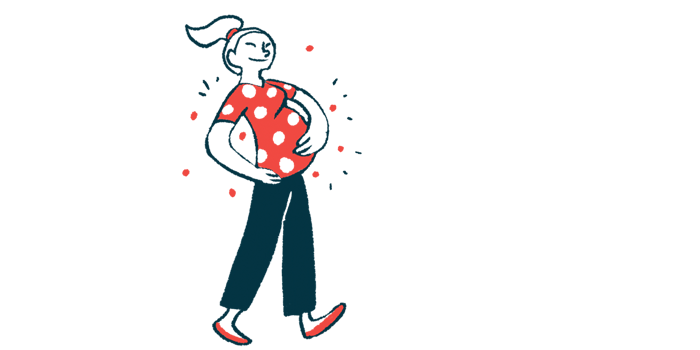Soliris safely used during pregnancy for two women with PNH
No complications seen in mothers or newborns due to treatment
Written by |

Soliris (eculizumab) was successfully used to help manage paroxysmal nocturnal hemoglobinuria (PNH) during a pregnancy in two women.
Based on observations made in these cases, the scientists noted that Soliris “seems to be generally safe in pregnancy for both mother and fetus,” though they emphasized a need for additional studies.
Both cases were described in “Eculizumab for paroxysmal nocturnal hemoglobinuria: Two cases of successful pregnancy outcomes,” published in the journal Clinical Case Reports.
Soliris works to prevent complement system activation, which drives hemolysis
Soliris is the first therapy to be approved for PNH. It works to block the activation of the complement cascade, a group of proteins that drive hemolysis, or red blood cell destruction, in the disease.
Pregnancy can cause disorders like PNH to worsen and increase the risk of clots, a potentially life-threatening PNH symptom. As many as 1 in 4 women are diagnosed with PNH while they are pregnant, the report noted. However, there’s not much data on the use of treatments like Soliris during pregnancy.
Scientists at the Clinical Center оf Vojvodina in Serbia reported the outcomes of two women with PNH who were treated with Soliris during pregnancy while receiving care at their center.
The first patient was a 38-year-old woman who was pregnant with her first child. She was hospitalized toward the start of the third trimester of pregnancy due to anemia, and lab tests confirmed a PHN diagnosis. She then was started on an anti-clotting medication as a precautionary measure.
The patient was hospitalized again a few weeks later, at which point lab tests indicated increasing hemolysis. After consultation with a multidisciplinary team of doctors, a decision was made to start her on Soliris.
Prior to beginning with Soliris, the patient was vaccinated against meningococcal infections, since Soliris increases the risk of these potentially life-threatening bacterial infections. A first dose of the therapy was given the day before the baby was delivered by cesarean section.
Safety seen with Soliris’ use in pregnancy, but further study needed
The second woman had been diagnosed with PNH in her 20s, and she had been managing the condition with iron and folic acid supplements, plus occasional courses of steroids to handle hemolytic crises. In her mid-30s, she chose to get pregnant via in vitro fertilization. Upon achieving pregnancy, she was started on precautionary anti-clotting treatment, along with folic acid and iron supplementation.
Owing to her known PNH diagnosis, the patient was monitored regularly throughout her pregnancy. Lab tests indicating a worsening in anemia and thrombocytopenia (low platelet counts) prompted a reduction in the dose of the anti-clotting medication at week 32 of pregnancy.
She then was started on Soliris at week 35. The patient developed preeclampsia, a pregnancy complication characterized by high blood pressure and signs of organ damage, a few weeks later, prompting the delivery of the baby by cesarean section at week 37 following a third dose of Soliris.
In both cases described in this paper, the newborns — a girl and a boy — had no notable issues. Both mothers continued on Soliris for three months after giving birth, then discontinued treatment. The first woman, however, restarted Soliris more than a year later when her symptoms worsened.
Scientists concluded these cases indicate Soliris can be safely used in PNH patients who are pregnant, although they noted that “more clinical data and a long-term follow up of infants from mothers who were treated with [Soliris] during pregnancy are needed.”





